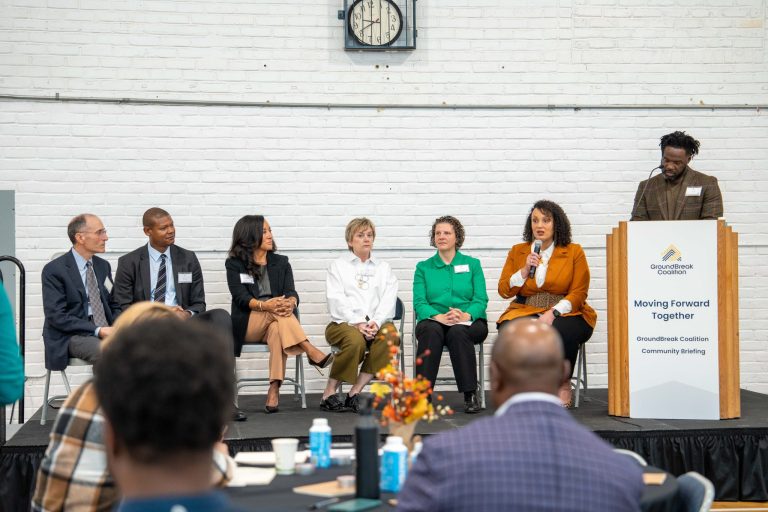“As I look at the extraordinary advances we’re proposing to make, I’m reminded again of the goal of my parents, Mac and Pat Binger: to address global hunger.”–ERIKA L. BINGER, BOARD MEMBER & FAMILY MEMBER
Early in the 1980s, when Ethiopia was on the verge of a devastating famine and other developing countries were facing mounting food crises, Mac and Pat Binger led their fellow McKnight Foundation board members in creating the plant biology program. Their work enhanced the human and research capacity of developing world scientists to address food security in their regions, and increased collaboration with local farmers. While their motivation was immediate and pressing, their foresight laid the groundwork for the Collaborative Crop Research Program that I write about today.
Today, the urgent need to stabilize global food systems in the face of unprecedented and increasingly complex challenges could not be more evident. While hunger was on some philanthropic agendas three decades ago, the last three years have become even more dire. According to the World Food Programme, 345.2 million people across the globe are food insecure, more than double the number in 2020. Indeed, the last three years have shone an even harsher light on the vast inequities and fragile food systems around the globe—food systems already under strain, now rocked by the pandemic and concurrent war, climate challenges, biodiversity loss, and a host of social and political disruptions.
At the same time, there is hope. Investing in a just and sustainable food system will increase access to sufficient and nutritious food, reduce food insecurity and poverty, improve climate resilience, and halt biodiversity loss for all. Further, in our decades of practice, we have learned that when local farmers have a say in the health of their food, water, and resources, and share their knowledge, they are a force for global change.
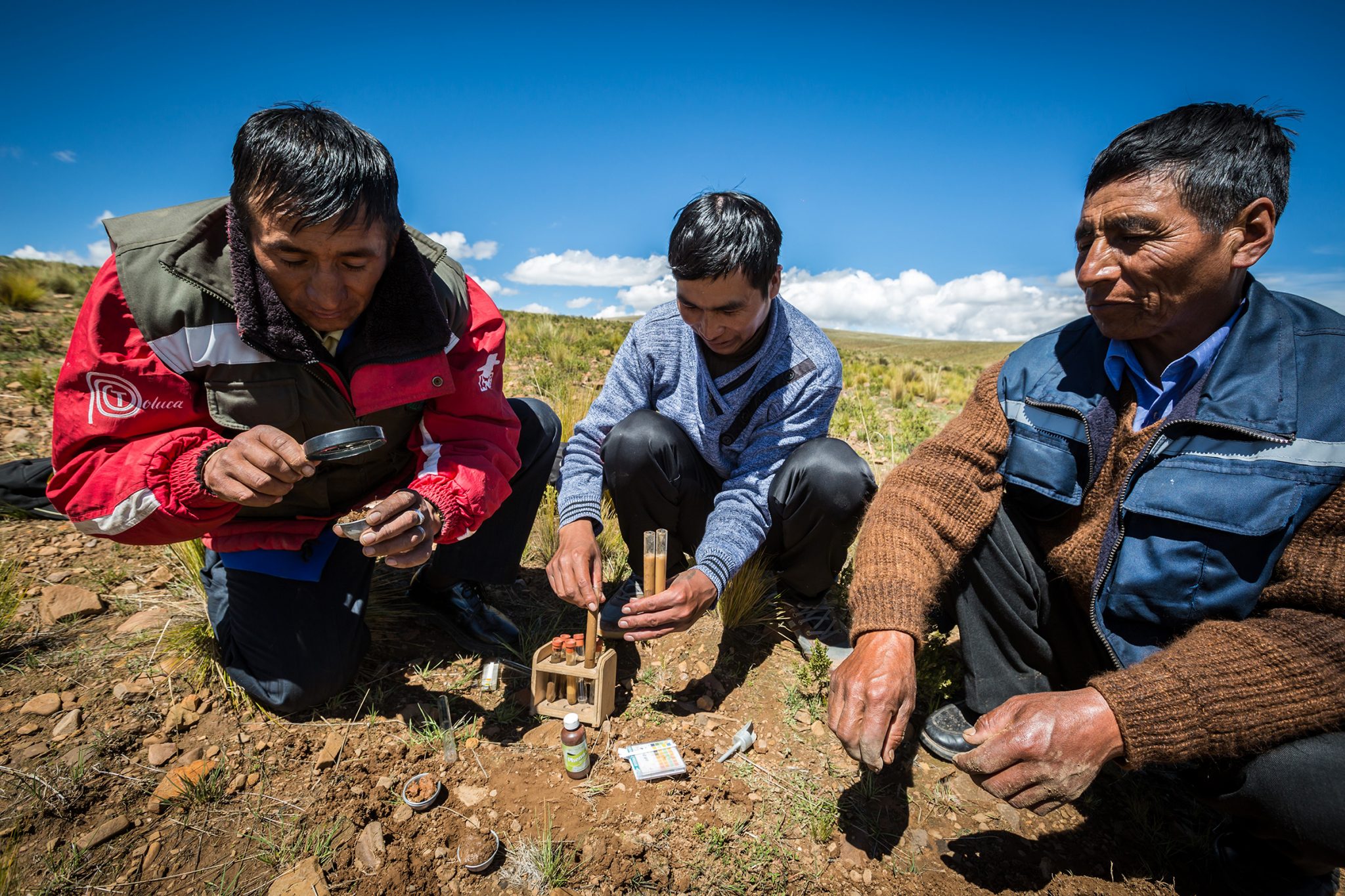
“In our decades of practice, we have learned that when local farmers have a say in the health of their food, water, and resources, and share their knowledge, they are a force for global change.”–JANE MALAND CADY, PROGRAM DIRECTOR, GLOBAL COLLABORATION FOR RESILIENT FOOD SYSTEMS
Amidst this moment of hope and uncertainty for the future of our food system, McKnight reviewed our approach through the Collaborative Crop Research Program to understand how we can focus our resources to match the urgency of the moment and build a food system for people and the planet to thrive that has the greatest impact at the local, regional, and global levels.
Over the past year, we have conducted a sweeping strategy review that has engaged the wisdom of scores of partners and voices around the globe, including farmers, researchers, students, grantees, policy specialists, philanthropic peers, and more.
As a culmination of this process, we are today announcing a new goal and program name that are intended to bridge our decades long history of place-based, farmer-centered research partnerships with the opportunity to shape food systems solutions on a global scale. Our expanded program dedicated to building food systems that are economically, socially, and ecologically just and sustainable will now be called the Global Collaboration for Resilient Food Systems.
Our new name derives from our new goal: Cultivate resilient food systems globally by bridging farmer-centered agroecological research, action, and influence.
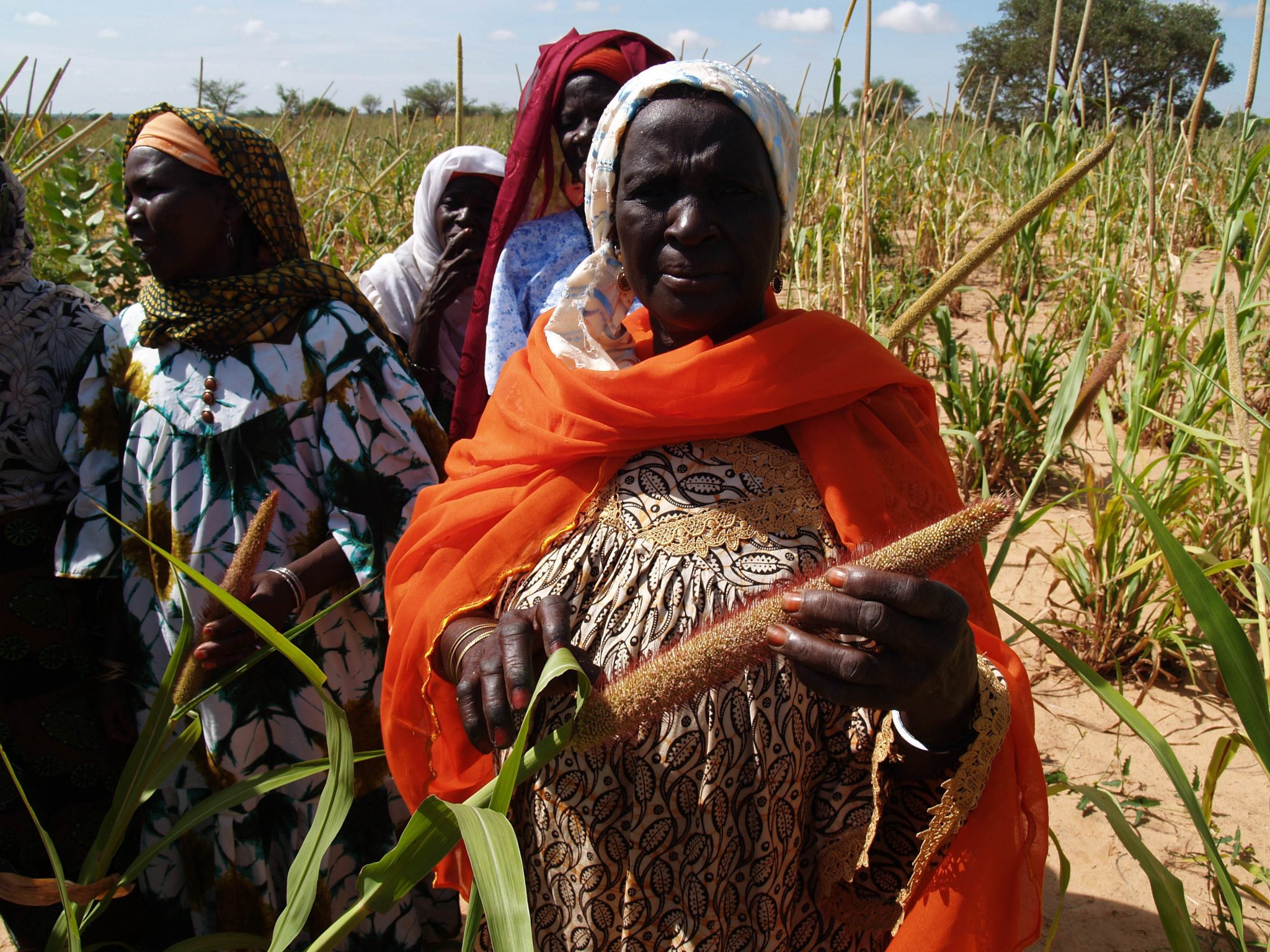
Digging In To Resilient Food Systems
As we aspire for globally resilient food systems, we start with the principles of Agroecology as our guide. Agroecology is a science, movement, and practice that embraces different sources of knowledge; addresses biodiversity loss, soil degradation, and pollution from agriculture; and centers the livelihoods of smallholder and Indigenous farmers. Agroecology is gaining momentum around the world, as evidenced by our regional and international partners and the tens of thousands of farmers we collaborate with in our communities of practice in 10 countries across the Andes, West Africa, and East and Southern Africa.
Resilient food systems advance the full principles of agroecology: they adapt to climate change, social disruption, and economic adversity; they are socially and economically inclusive; and they generate healthy and available food, lasting ecological health, and thriving local economies for all. Moreover, resilient food systems connect policies, research, and funding across local, national, regional, and international contexts—allowing McKnight and our many collaborators to have a truly unique impact.
“Our expanded program is dedicated to building food systems that are economically, socially, and ecologically just and sustainable.”–JANE MALAND CADY, PROGRAM DIRECTOR, GLOBAL COLLABORATION FOR RESILIENT FOOD SYSTEMS
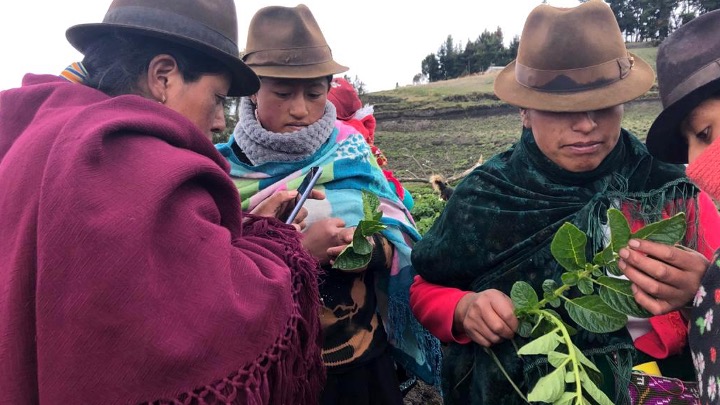
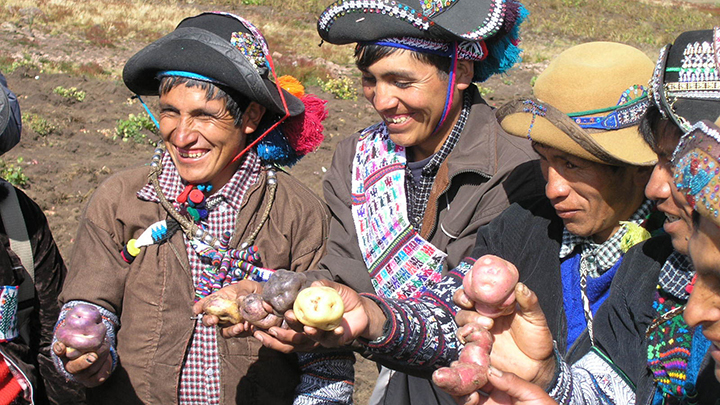
Building On Deep Roots In Local Communities
Over the last three decades, we have fueled innovations to enable agricultural researchers and institutions to engage more equitably with farmers; we have strengthened the capacities of researchers and farmers to seek ecological solutions together; we have helped build a far-reaching cadre of leaders in the Global South who are shaping farming, research, institutions, and policy. Through the duration, McKnight has been seen as a knowledgeable leader committed to equitable food systems solutions through research, influence, and thought leadership.
Our regional communities of practice serve as “living learning labs” for testing, scaling, and spreading solutions. Our farmer research networks give smallholder farmers and farm communities a voice in our collective future. Since 2013, the Foundation has supported 30 farmer research networks ranging in size from 15 to more than 2,000 farmers.
We have learned through countless collaborative research efforts that enhancing farmers’ ability to access and adapt agroecological innovations can improve their productivity, food security, and resilience. In the arid Maradi region of Niger, the Women’s Fields project is testing the efficacy of readily available fertilizers, including human urine, and teaching women in other regions how to do the same. A collaboration of local farmers, research institutes, and NGOs in Peru is working to maintain the diversity of native potatoes in the high Andes. And in Ecuador and East Africa, farmers are working to manage crop pests without relying on chemical pesticides. In each of these examples and many more, smallholder farmers not only provided nutrition for their families and communities, but improved productivity, improved soil health, and improved their livelihoods.
“I am encouraged by feedback from our partners who say that our approach to building equitable, just, and inclusive food systems is working, and that we need to do more to influence others … The grounded work that McKnight has been engaged in for decades gives us a unique platform—and we must use it.”–TONYA ALLEN, PRESIDENT
Growing farmer research networks in our regions and beyond has increased the equity for smallholder farmers and their communities by shifting research norms and agendas and equally valuing local and Indigenous knowledge alongside scientific knowledge. This approach, which requires listening, building trust, and sharing power, is an integral part of our efforts to enact global change, and will ensure that more voices decide how food systems outcomes are defined and achieved.
“I am encouraged by feedback from our partners who say that our approach to building equitable, just, and inclusive food systems is working, and that we need to do more to influence others,” said McKnight Foundation president, Tonya Allen. “I agree with them. We have a long way to go, and the grounded work that McKnight has been engaged in for decades gives us a unique platform—and we must use it.”
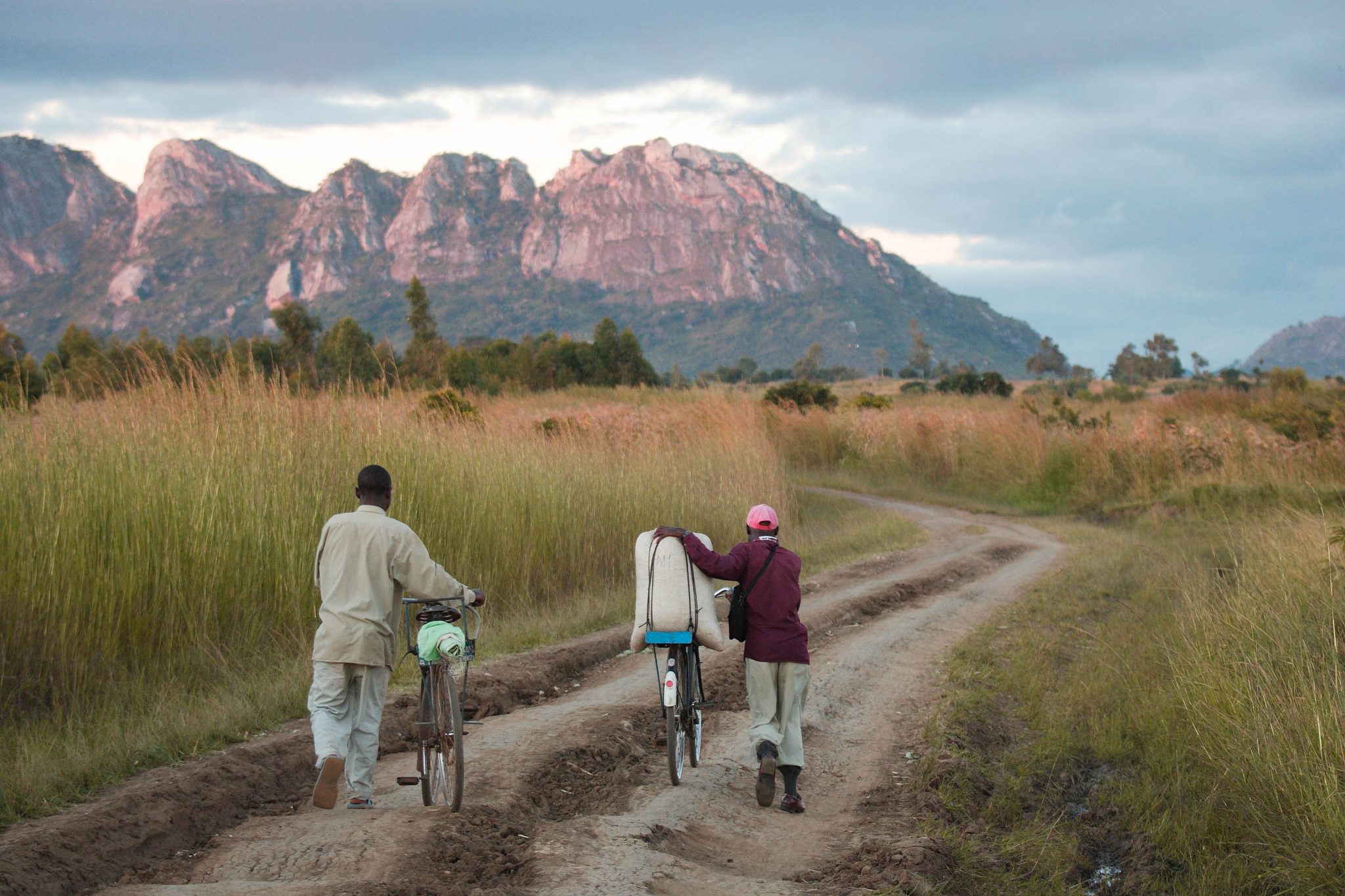
Growing Our Global Food Systems Impact
Our deep local perspective is exactly what calls us to have a more global impact. With the grounded, place-based future we continue to hold, we are stepping into this opportunity to leverage the relationships, networks, and evidence that have been created to advance deep transformations in local, regional, and global food systems. This aligns with McKnight’s vision and commitment to moving from grantmaker to changemaker, while still honoring the core of our work in collaborative research.
Global trends bear witness to the imperative for us to take this step forward. Over the past 10 years, there has been a rapid growth in the numbers of actors, including other philanthropies, spearheading food initiatives regionally, nationally, and internationally. This is a positive trend. Our program is uniquely positioned, given our deep understanding of local context, to help guide this influx of funding toward agroecological food systems that are economically, socially, and ecologically just and sustainable.
“We will leverage the work we have been doing for decades on the ground to create an enabling environment for agroecological practices and principles, leading to a groundswell of global impact.”–JANE MALAND CADY, PROGRAM DIRECTOR, GLOBAL COLLABORATION FOR RESILIENT FOOD SYSTEMS
Specifically, we will leverage the work we have been doing for decades on the ground to create an enabling environment for agroecological practices and principles, leading to a groundswell of global impact. Building on our work to date with key partners like the Global Alliance for the Future of Food, the Food and Agriculture Organization of the United Nations, and the Agroecology Fund, there are three specific areas of that enabling environment that we will work to influence:
- Funding flows—to direct public finance, philanthropic support, and other resources toward agroecological approaches to effect meaningful, sustainable change.
- Global policy—to enable agroecological transformation by scaling up the ecological, social, and economic resilience of our food systems, rooted in mutual respect for various cultural food traditions of local community members.
- Research—to support the advancement of research norms and agendas that are more holistic and inclusive, systems-focused, and have a greater emphasis on agroecological principles and practice.
Over the last three decades, McKnight and our many collaborators have been on the leading edge of food and agricultural work, planting seeds that are now ready to grow into greater impact and forward-thinking approaches on a global scale. We are excited to continue this journey to tackle one of the most pressing issues of our day with you all—grounded in real work by real people in real places.


